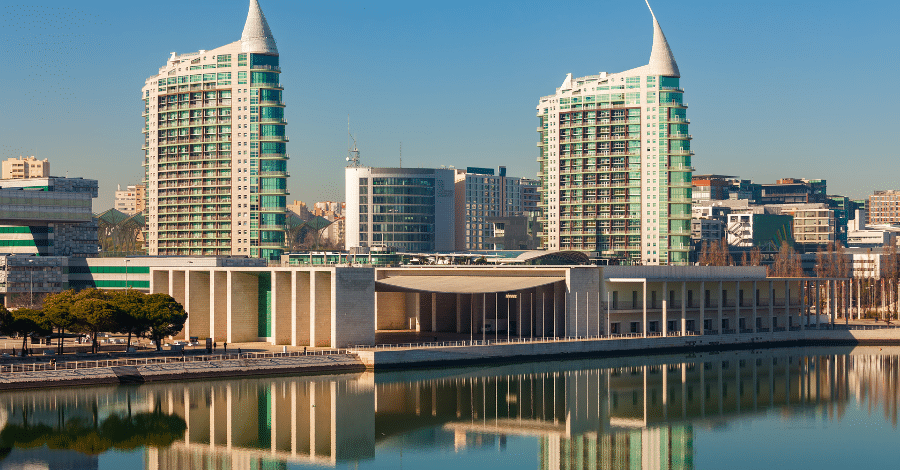Finding employment in Portugal as an expat is a common aspiration for many seeking a change of scenery and lifestyle. Whether motivated by career opportunities, retirement plans, or simply a desire for a new adventure, working in Portugal can offer both professional growth and cultural enrichment.
With the rise of remote work opportunities, the prospect of earning a living in Portugal has become increasingly accessible to individuals from diverse backgrounds and professions. Additionally, the allure of Portugal’s steady economy and quality of life makes it an attractive destination for those considering self-employment or entrepreneurship.
While proficiency in Portuguese can certainly enhance one’s experience and opportunities in the country, there are avenues for expats to navigate the job market and establish themselves professionally without fluency in the local language. However, like in many other countries, possessing at least a basic grasp of Portuguese can greatly facilitate daily interactions and integration into Portuguese society, particularly in more traditional or rural areas.
In this article, we will explore various avenues for making a living in Portugal as an expat, whether through traditional employment, remote work, or entrepreneurial ventures, while considering the language and cultural factors that may influence your experience.
Can you work in Portugal as a foreigner?
As a foreigner, you can work in Portugal, but there are certain steps and requirements to consider. If you’re a citizen of a European Union (EU) or European Economic Area (EEA) country, you have the right to work in Portugal without needing a work visa or permit. However, you will still need to register with the Portuguese authorities upon arrival.
For non-EU/EEA citizens, obtaining a work visa or residence permit is typically required to legally work in Portugal. This process usually involves securing a job offer from a Portuguese employer before applying for the necessary permits. The employer may need to demonstrate that the position cannot be filled by a Portuguese or EU/EEA citizen.
Alternatively, if you’re self-employed or planning to start your own business in Portugal, you’ll need to apply for a different type of visa or permit tailored to entrepreneurs and freelancers. This may involve demonstrating sufficient financial means to support yourself and your business venture in Portugal.
It’s worth noting that knowledge of the Portuguese language may be required or preferred for many job opportunities, especially those involving direct interaction with Portuguese clients or colleagues. However, there are also positions available in international companies or sectors where English or another foreign language is commonly used.
How to make a living in Portugal as an expat
1. Teaching English
The demand for English language instruction in Portugal presents opportunities for expats to work as English teachers in language schools, private tutoring, or even within the public education system. While a teaching certificate such as TEFL (Teaching English as a Foreign Language) or CELTA (Certificate in Teaching English to Speakers of Other Languages) may enhance job prospects, some positions may only require fluency in English and a bachelor’s degree. Expats can find teaching opportunities in cities like Lisbon, Porto, and Faro, catering to students of all ages and proficiency levels.
2. Tourism and Hospitality
Portugal’s thriving tourism industry offers employment opportunities for expats in various sectors, including hospitality, tourism management, tour guiding, and event planning. With its beautiful villages, historic sites, and vibrant culture, Portugal attracts millions of visitors each year, creating a demand for skilled professionals to cater to their needs. Expats with experience in hotel management, restaurant operations, or tour coordination can find job opportunities in popular tourist destinations such as the Algarve region, Lisbon, and Porto.
3. Wine Tourism Guide
Portugal is renowned for its wine production, with regions like the Douro Valley and Alentejo offering world-class vineyards and wineries. Expats with a passion for wine and hospitality can pursue opportunities as wine tourism guides, leading visitors on immersive wine tasting experiences and vineyard tours. With expertise in oenology and local wine culture, expats can provide informative and engaging tours, showcasing Portugal’s diverse wine regions and culinary traditions to tourists from around the globe.
4. Real Estate and Property Management
With a booming real estate market fueled by foreign investment and tourism, expats can explore opportunities in property management, vacation rentals, real estate brokerage, or property development. Whether assisting international buyers in purchasing vacation homes, managing rental properties for absentee owners, or renovating and flipping properties for profit, expats can capitalize on Portugal’s attractive property market and favorable tax incentives for real estate investment.
5. Consulting
Expats with specialized skills or expertise in areas such as marketing, design, IT, legal services, or financial advising can offer their services as consultants to Portuguese businesses or international clients. Whether working independently or through freelancing platforms, expats can market their services to a diverse range of clients, tapping into Portugal’s growing economy and demand for professional services.
6. Surfing Instructor
Portugal’s coastline boasts some of the best surfing spots in Europe, attracting surf enthusiasts from all over the world. Expats who are avid surfers and certified instructors can capitalize on this growing trend by offering surfing lessons and coaching services. Whether operating independently or partnering with surf schools and resorts in destinations like Ericeira, Peniche, or Sagres, expat surfing instructors can share their passion for the sport while enjoying Portugal’s laid-back beach lifestyle and oceanfront scenery.
7. Yoga Retreat Organizer
Portugal’s tranquility and mild climate make it an ideal destination for wellness tourism. Expats with experience in yoga instruction, event planning, and hospitality can create and organize yoga retreats in picturesque settings such as the Algarve coast, the Azores islands, or rural Alentejo. By curating immersive retreat experiences that combine yoga, meditation, healthy cuisine, and cultural excursions, expats can attract international participants seeking relaxation, rejuvenation, and personal growth.
Can I start a business in Portugal?
As an expat, you can open a business in Portugal, and the process is relatively straightforward. Here are the key steps and information you need to know:
- Residency and Visa Requirements: While you don’t need Portuguese citizenship to start a business, you will need to have legal residency in Portugal. Non-EU/EEA citizens may need to obtain a residence visa or permit for entrepreneurship purposes.
- Choose a Business Structure: Portugal offers several business structures, including sole proprietorship (Empresário em Nome Individual), limited liability company (Sociedade por Quotas), and public limited company (Sociedade Anónima). Consider factors such as liability, taxation, and administrative requirements when choosing the right structure for your business.
- Business Registration: To register your business in Portugal, you’ll need to obtain a taxpayer number (Número de Identificação Fiscal) and register with the Commercial Registry Office (Conservatória do Registo Comercial). This process involves submitting the necessary documents, such as identification, proof of address, and articles of association for the chosen business structure.
- Taxation and Social Security: Familiarize yourself with Portugal’s tax system and social security obligations for businesses. This includes corporate income tax, value-added tax (VAT), and contributions to social security schemes for employees.
- Business Permits and Licenses: Depending on your business activities, you may need to obtain specific permits or licenses from relevant authorities. This could include permits for operating a restaurant, selling alcohol, providing professional services, or conducting construction projects.
- Bank Account: Open a business bank account in Portugal to manage your company’s finances, process payments, and comply with financial regulations.
What are popular businesses started by expats?
Expats in Portugal infuse their culinary talents into the local food scene, establishing diverse dining experiences ranging from traditional eateries to innovative fusion concepts. From cozy cafes serving specialty coffees to food trucks offering international street food, these establishments in cities like Lisbon, Porto, and Faro enrich the gastronomic sector with their unique flavors and creative twists on Portuguese cuisine.
Meanwhile, artisanal craft studios and boutique shops flourish with expat entrepreneurs showcasing their craftsmanship in handmade goods, textiles, ceramics, and jewelry, blending local traditions with global influences. Portugal is also known for its lively markets in almost every town and city, allowing for plenty of opportunities to sell.
In the big cities such as Lisbon, Porto, Coimbra and Castelo Branco, there is a large start-up culture that allows for new business opportunities in consulting, tech, tourism, and agriculture.
Last but not least, expats also contribute to Portugal’s wellness industry by establishing yoga studios, holistic retreats, and wellness spas that emphasize holistic health practices.
Working remotely from Portugal
Working remotely from Portugal has become an increasingly popular option for expats seeking a balance between professional opportunities and quality of life. Expats can leverage modern amenities such as high-speed internet, co-working spaces, and digital nomad communities in cities, creating conducive environments for productivity and collaboration.
One of the key advantages of working remotely from Portugal is the flexibility it offers in terms of lifestyle and work-life balance. Expats can design their workday around their preferred schedule, whether it’s taking breaks to explore local sights or enjoying outdoor activities. Additionally, Portugal’s relatively affordable cost of living compared to other European countries makes it an appealing destination for remote workers looking to stretch their income.
Moreover, Portugal’s strategic location within Europe provides convenient access to major European cities and business hubs, making it an ideal base for remote professionals who need to travel for meetings or networking events.
American and British expats can also take advantage of Portugal’s favorable time zone, which overlaps with both European and American business hours, facilitating communication and collaboration with clients and colleagues across different regions.







Leave a Comment